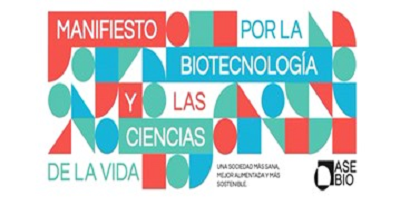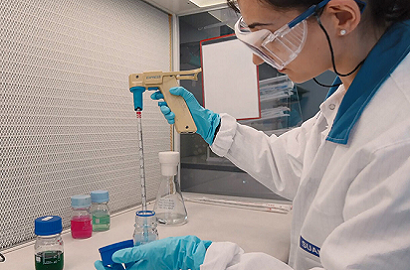Asebio highlights the importance of international partnerships in the biotech sector

Two major foreign companies made acquisitions in Spain in 2018 for 674 million euros
Investments in the biotech sector (whose main activity is biotechnology) in 2018 included two major corporate transactions: the acquisition of TiGenix by the Japanese company Takeda for a sum of 520 million euros, and the purchase of Stat-Dx by the German company Qiagen for 154 million. This among the information to be found in the 2018 Asebio Report on the situation and trends in the biotechnology sector in Spain, published by the Spanish Biocompany Association (Asebio).
In addition to these two transactions, the volume of private capital increased for the third year in a row, to over 94 million euros. The share of capital risk funds, which rose substantially in 2017, has accumulated almost 600 million euros in Spain since 2008.
Strategic partnerships
Asebio's member companies entered into almost 200 strategic partnerships in 2018, of which half were public-private. Collaborations with the European environment represent 27% of the total, and are followed by the United States (8%), Latin America (3%) and Asia (3%). Almost half these partnerships are signed for the purpose of developing R&D projects.
One of the priorities of biotech companies is internationalization, which they achieve through investment rounds with the participation of international funds, who in 2018 contributed almost 74 million euros to their funding. The priority markets are the European Union, United States and Japan, due to their greater stability. This is one reason for the decline in interest in the United Kingdom and Latin America.
Increase in employment
The process of expansion of the Spanish economy has meant that production levels are now higher than before 2009, and this figure has gone hand in hand with a 9% increase in the creation of companies in the biotech sector. Sector-wide, 2,400 jobs have been generated thanks to the creation of 62 new companies.
Biotech companies accounted for 0.7% of the Spanish GDP in 2017 – around 6.95 billion euros –, and maintained 0.5% of the jobs, with 92,000 in total, 25,000 of which are direct. These companies contributed 2.5 billion euros that year to the public coffers, representing 0.2% of GDP.
Knowledge production
Spain is the ninth country in the world in knowledge production in the biotech sector. In 2018, Asebio's member companies launched 86 new products and services on the market. According to Ion Arocena, general manager of Asebio: “We need to promote the innovative capacity of our sector due to its major social and economic impact”.
The Asebio report, which has been published annually since 1999, analyzes the main indicators in Spanish biotechnology. Its chairman, Jordi Martí, explains: “Our association was created to promote the development of the Spanish biotechnology sector. Twenty years later we continue our support for the transformative power of the biotechnology sector which has such an impact on the well-being of millions of people, and for helping resolve some of our greatest social and generational challenges”.




